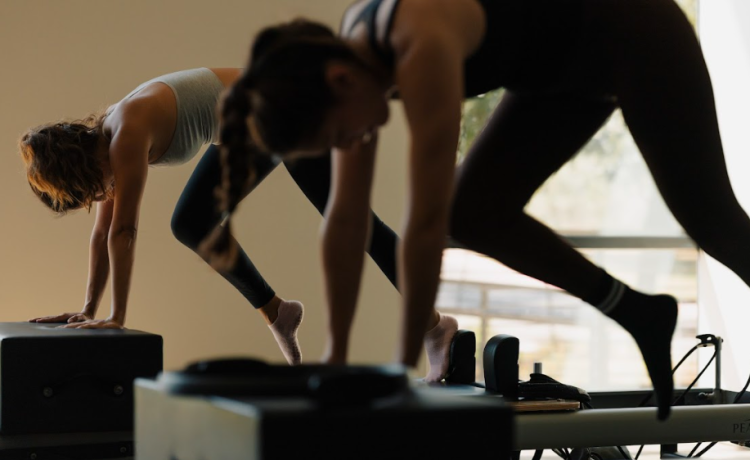Staying active has always been one of the cornerstones of a healthy lifestyle. Whether it’s professional sports, recreational activities, or simply making fitness a part of daily routines, the role of physical activity in supporting long-term wellness cannot be overstated. From strengthening the body to sharpening the mind, embracing sports and an active lifestyle is a pathway toward a more energetic and fulfilling life.
In a time when sedentary habits are on the rise, exploring the connection between sports, physical fitness, and overall well-being is more important than ever.
Sports as a Foundation for Physical Health
Engaging in sports provides clear physical benefits that go far beyond what many traditional workouts offer. The varied movements, intensity levels, and skill-building aspects of sports allow participants to build strength, endurance, and coordination in ways that feel engaging and enjoyable.
Activities like swimming, soccer, tennis, or martial arts strengthen the cardiovascular system, promote flexibility, and enhance muscle tone. Unlike repetitive gym exercises, sports often bring an element of play, which encourages consistency and long-term participation.
Even moderate sports involvement contributes to weight management, reduced risk of chronic illnesses, and better metabolic health. For individuals pursuing specific fitness goals, science-backed approaches and supplements can also provide valuable support. Some athletes, for example, explore innovative wellness tools and choose to buy AOD9604e online to complement their training and recovery strategies.
Mental Benefits of Sports Participation
Beyond physical improvements, sports play a critical role in supporting mental health. Exercise triggers the release of endorphins, the brain’s natural “feel-good” chemicals that elevate mood and reduce stress.
Sports also provide structure and goals, fostering a sense of achievement when milestones are reached. The challenge of training, combined with visible progress, reinforces confidence and resilience.
Team sports in particular encourage cooperation, trust, and communication, while solo pursuits like running or cycling promote mindfulness and focus. Both paths ultimately improve mental clarity and emotional balance.
Building Discipline and Life Skills Through Sports
Sports are more than just games—they’re also powerful teachers. Commitment to training instills discipline, while competition nurtures determination and perseverance. These qualities often carry over into daily life, shaping how individuals approach careers, relationships, and personal goals.
Young athletes, for instance, frequently develop time management skills as they balance training with education. Adults who remain active in sports often benefit from stress management and improved productivity in professional settings.
The values of teamwork, fair play, and resilience learned through sports remain relevant long after the game ends.
Social and Community Benefits
Sports have always been a unifying force. Whether it’s a neighborhood basketball game, a local marathon, or global events like the Olympics, athletic pursuits bring people together.

This sense of belonging and shared purpose contributes significantly to emotional well-being. Positive social connections formed through sports can alleviate feelings of isolation and encourage accountability, making it easier to maintain an active lifestyle.
For many, the friendships built on the field or in the gym become lifelong relationships that provide ongoing support and encouragement.
Sports and Healthy Aging
Staying active through sports isn’t just for the young—it’s equally important for older adults. Low-impact sports such as swimming, cycling, and yoga help maintain joint flexibility, balance, and strength.
Active aging is increasingly recognized as one of the keys to longevity. Regular participation in sports has been linked to improved bone density, reduced risk of falls, and sharper cognitive function in older adults.
By continuing to engage in age-appropriate activities, individuals can maintain independence, vitality, and quality of life well into their later years.
Supporting Performance and Recovery
Athletes—both recreational and professional—are increasingly mindful of the importance of recovery. Intense training and competition place stress on the body, and without proper care, injuries and burnout can occur.
Recovery strategies such as stretching, massage, hydration, and adequate sleep are essential. Nutrition also plays a central role, with balanced meals ensuring that the body receives the fuel it needs to repair and grow stronger.
For those seeking additional support, innovative solutions like peptides and performance-oriented supplements can offer targeted benefits. When integrated responsibly, they can help reduce recovery times and support long-term athletic goals.
Staying Informed and Inspired
As sports science advances, staying updated on best practices for fitness, training, and performance has never been easier. Trusted resources like Sports Illustrated provide insights into athlete stories, training tips, and innovations in the world of sports. Reading from reputable publications can inspire athletes of all levels to push their limits while prioritizing health and safety.
Conclusion
Sports and active living are deeply connected to physical, mental, and emotional well-being. From building strength and resilience to fostering community and joy, the benefits extend far beyond the playing field.
By incorporating sports into everyday routines, individuals create a strong foundation for long-term health. With thoughtful recovery, balanced nutrition, and support from modern wellness tools, it becomes easier to sustain energy and reach performance goals.
Ultimately, sports are more than a pastime—they’re a way of life that promotes vitality, balance, and fulfillment at every stage of life.






